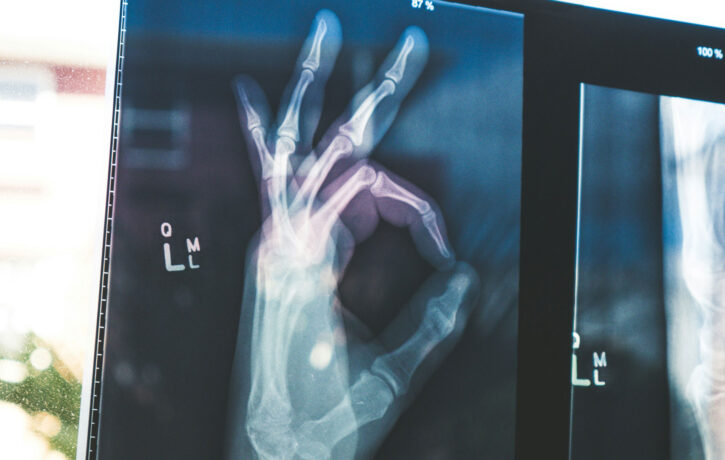in Osteopathy
Musculoskeletal Health and Preventative Medicine

When we think about musculoskeletal pain, it is often physical injury or wear and tear that we blame. That is not strictly true. Although physical injury is an inherent part of body pain when we are injured, not all physical pain is due to injury.
Sensitisation can be a huge part of body pain and suffering, be it neck pain, lower back pain, or literally any joint or muscular pain.
What leads to these sensitised tissues can be down to lifestyle habits such as the way we hold and carry ourselves for work and/or recreation, as well as elements of lifestyle like diet, lack of physical activity, and even stress and anxiety. These lifestyle factors, when not managed well will lead to an increase in inflammation.
Inflammation is the process by which our tissues recover from stressful events such as a sprained ankle, dealing with anxiety or getting drunk the night before. It can be localised to the part of the body we have injured or systemic when it can affect the whole body.
In the example of a sprained ankle, there is what is known as a localised inflammatory response. This is due to the bleeding of the torn tissues around the ankle and leads to a strong localised response where inflammatory cells migrate very efficiently to the site of injury. This is appropriate to start the healing process but creates high sensitisation localised to the ankle.
A hangover is literally the body recovering from the stress to the liver and other organs when we overdo it. The reason we feel so crap, is that with higher levels of inflammation, we feel physically more sensitive and get symptoms of nausea, headaches and lethargy.
When it comes to stress and anxiety, the response to such events in life leads to fight or flight. Fight or flight is driven by the sympathetic nervous system, part of the autonomic nervous system, which raises stress hormones such as cortisol and adrenaline in the system. Sustained levels of stress hormones over days, weeks, or months, negatively impact our cells, organs and tissues and lead to raised levels of inflammation to reverse the stress. However, as appropriate as this is for physical health, and as efficient as the system has become over millions of years of evolution, it was not designed to accommodate modern life and sustained stress as can affect so many of us these days.
The point I am making is that whatever causes increased levels of inflammation, either locally with the example of a sprained ankle ( a few weeks of pain) or raised levels of systemic inflammation that occurs in the short term (a day or 2) with a hangover, or over much longer periods when it comes to stress and or diet (days, weeks, months or a lifetime).
You can now start to build a picture of how poor lifestyle choices around diet, physical health and stress management, can lead to raised levels of inflammation, and feelings of physical pain and discomfort. Arthritis literally translates as joint inflammation. Take the inflammation away and the joint no longer hurts.
Of course, this is not always completely in our control as environmental factors of pollution and infection will affect cellular health and emotionally stressful events, tend to happen to us and are rarely by choice.
However, we can offset such factors that are out of our control by becoming more mindful of other factors I have already talked about.
We must not underestimate the positive impact of better lifestyle choices on the health of our cells and tissues. Not only has regular exercise been shown to reduce the effect of low mood and depression in the short term, but research has also shown it reduces the risk of dementia in later life.
Better choices around diet and exercise reduce their impact on inflammatory levels and reduce the risk of developing more chronic inflammatory conditions such as diabetes and cardiovascular disease.
Diet choices that focus on lower inflammatory foods consistently reduce the pain levels in many people who suffer from painful, arthritic joints. This can be really quick as well, quite often within 7 to 10 days of dietary changes I get feedback that suffering has reduced and function improved.
Massage for physical pain will help relax and reduce the effect of stress on the body and can be part of a regular anti-inflammatory plan in combination with other lifestyle factors.
If you want to seek advice and treatment for physical pain that you feel could be provoked by inflammation, please do not hesitate to get in touch.
Matthew Oliver is an osteopath, musculoskeletal pain specialist and massage therapist. For further information or to book a treatment with Matthew, phone The Body Matters on 01702 714968 or contact us to book an appointment.
- How Pushing Too Hard Can Affect Your Health - 23rd April 2025
- Finding Hope and Comfort Through Pain - 21st March 2025
- Non-Pharmacological Solutions for Managing Pain in Parkinson’s - 19th February 2025
